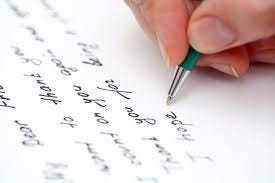What Phones Make Us Forget
And Faith Makes Us Remember
I was talking with my mom recently, and she mentioned she had just spent several hours writing down birthdays, anniversaries, and yahrzeits (Jewish day for remembering the death of a loved one) for the coming year.
My initial reaction (which I kept to myself) was “That’s a waste of time. Why doesn’t she use google calendar or some other app to keep track? It would save so much time and make for better accuracy."
I use a digital calendar that syncs across my devices. I could not imagine my life without it.
But then I thought for a moment. When she is writing down those dates, she is bringing her loved ones to mind. She is noticing the passage of time.
Handwriting on a physical calendar evokes memory and connection in a way no automatic digital calendar ever could.
What are we missing when we let technology do our remembering? What have we forgotten that our ancestors once knew? Can we get it back?
Even if you still use a physical calendar, you might find some guidance and inspiration here:
1. Realizing the fullness of time: My mom noticed it had been 15 years since her father died. He had been an enormous part of our lives, the family patriarch.
What had changed over the last 15 years? How was he remembered by his children and grandchildren? Writing down his yahrzeit brought all these questions to mind.
Or take the anniversary of dear friends. Writing down their names and that date reminded her they had not spoken in a while. It was a big anniversary, and perhaps they could plan a get-together to celebrate.
Our society has become lonelier and more divided over the last several decades. Anniversaries and birthdays give us opportunities for connection.
But that connection needs to be deeper than simply wishing a happy birthday on Facebook. Real connection takes time and effort. Writing down these dates can prompt us to give those relationships the necessary attention.
2. Mindfulness: Do you ever sit down and really think through a problem? Or do you tend to get online and google for other opinions on the internet? I venture to say many people do the ladder.
We may talk it through with a friend but rarely do we just sit and marinate over a tough question or decision. And often the answer to such questions requires a simple shift in perspective.
The great twentieth-century philosopher Ludwig Wittgenstein illustrated this truth with a wonderful parable. He described a fly trapped in the bottle. It is looking for a way out.
Over and over it bangs its head against the glass until at last, exhausted, it dies. What the fly didn’t realize is that the bottle has been open all the time. The fly never stopped to look up.
Sometimes we are like that fly. We do not stop and think and fall into the same patterns over and ever.
Writing things down forces us to stop and think. Our hands cannot move us quickly as our brains, so we have to pause. Try to make the most of that pause.
3. Ritual: Birthdays and anniversaries are not simply days. They are sacred occasions accompanied by rituals.
Ritual is the human way of making meaning out of time. Time just is. From one point of view, January 1st is a 24-hour day like any other. But for many of us, it is the beginning of a new year.
We may have rituals for marking this new beginning. These rituals not only make meaning out of time. They can change our perspectives and deepen our experience of the world.
Poet Christiana Baldwin defined ritual as "the act of sanctifying action — even ordinary actions — so that it has meaning. I can light a candle,” she writes, "because I need the light or because the candle represents the light I need.” Indeed.
The beginning of the year is an ideal to think about the days, the moments, the rituals that matter. Few things are more important.
Financial professionals can tell us how to invest our money. Faith tells us how to invest our time.



Shalom! I’ve been watching “Chosen” on my phone and am learning about the world of a rabbi and his students in the first century A.D. I find your posts fascinating and look forward to seeing more of them. Thank you for sharing your wisdom with us!
Rabbi, Your insight into taking time to connect - like writing by hand - like meditation - ritual are greatly appreciated. I have a working theory that connection is the source of joy. Thank you, D